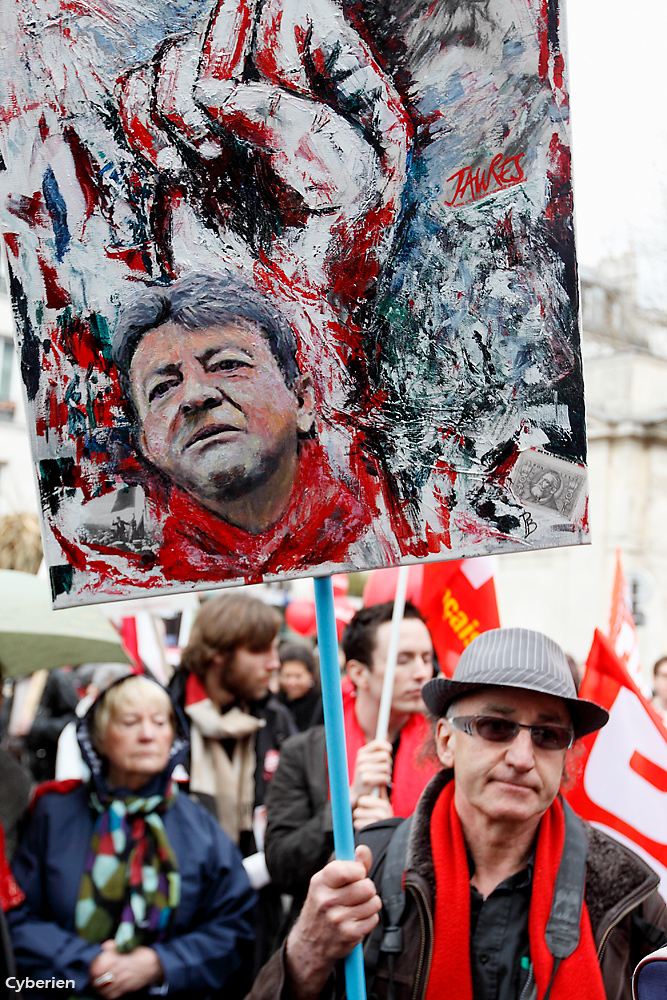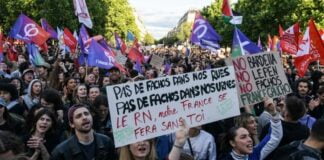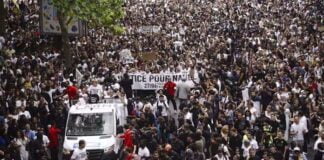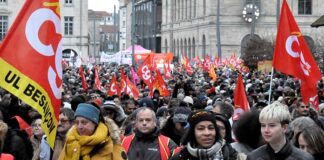French President Nicholas Sarkozy will hopefully be thrown out in the approaching elections, in a vote against austerity.
Islamophobia following the shooting of seven people by a French Algerian gunman in Toulouse had seemed to boost the French right.
The fascist National Front’s Marine Le Pen is polling 13-16 per cent. Le Pen blames immigrants for unemployment and is rabidly Islamophobic, claiming that Parisians are being secretly fed Halal meat. She has seized on the shootings in Toulouse to attack Sarkozy over immigration.
The shootings by 23 year-old Mohammed Mera left three Jewish children, a rabbi and three soldiers dead. Mera cited revenge for the deaths of Palestinian children and the French occupation of Afghanistan as his reasons.
The seeds of this tragedy were sown by French foreign policy and Sarkozy’s years of vitriol against Muslims and immigrants. He banned Muslim street prayers and agrees with the National Front that halal meat is a “main preoccupation” of voters. In 2010 he banned the burqa, and rounded up Roma gypsies to expel them from France. Following the Toulouse shooting he has leapt into action with raids and arrests of 29 “Islamists”.
Left alternative
But there is a hopeful challenge emerging on Sarkozy’s left.
The Socialists (the French Labor Party) have had just one President since 1958, but party leader Francois Holland looks set to win on a promise of “growth not austerity”.

Hollande is not anti-austerity per se, as his commitment to avoid budget deficits shows. Unemployment and austerity are big issues in France. Unemployment stands at a 12-year high and unpopular reforms in 2010 increased the retirement age from 60 to 62, despite powerful strikes among petrol, transport, electricity and dockworkers.
Hollande’s unambitious campaign has opened up the space to his left—now filled proudly by Jean-Luc Mélenchon of the Left Front, a breakaway from the Socialist Party. Mélenchon has brought the working class back onto the streets, leading a demonstration of 70,000 in Toulouse. He calls for a “citizen’s insurrection”, speaks of “bashing bankers” and imposing a 100 per cent tax on earnings above €360,000. In response to Hollande’s meek appeal that he is “not dangerous”, Mélenchon proudly declared, “I am dangerous… Dangerous for financial interests.” He is polling 15 per cent.
Mélenchon’s campaign is a breath of fresh air. His has inconsistently opposed Islamophobia, but is showing there is a clear alternative—fighting Sarkozy and austerity, not immigrants and Muslims.
Erima Dall





